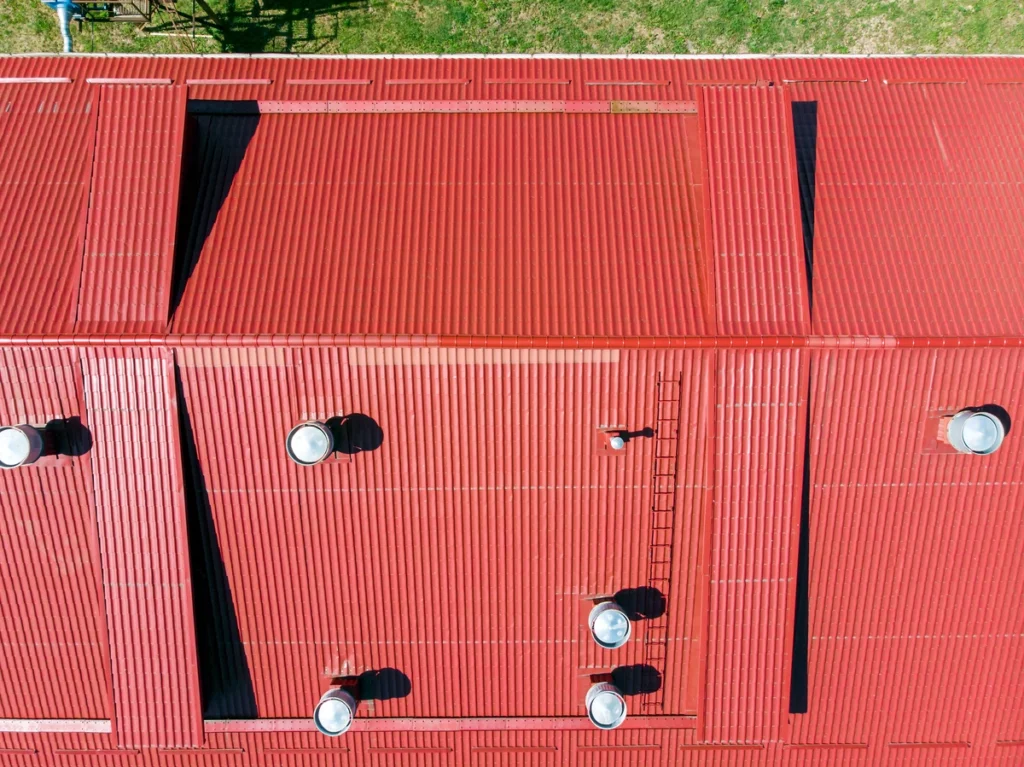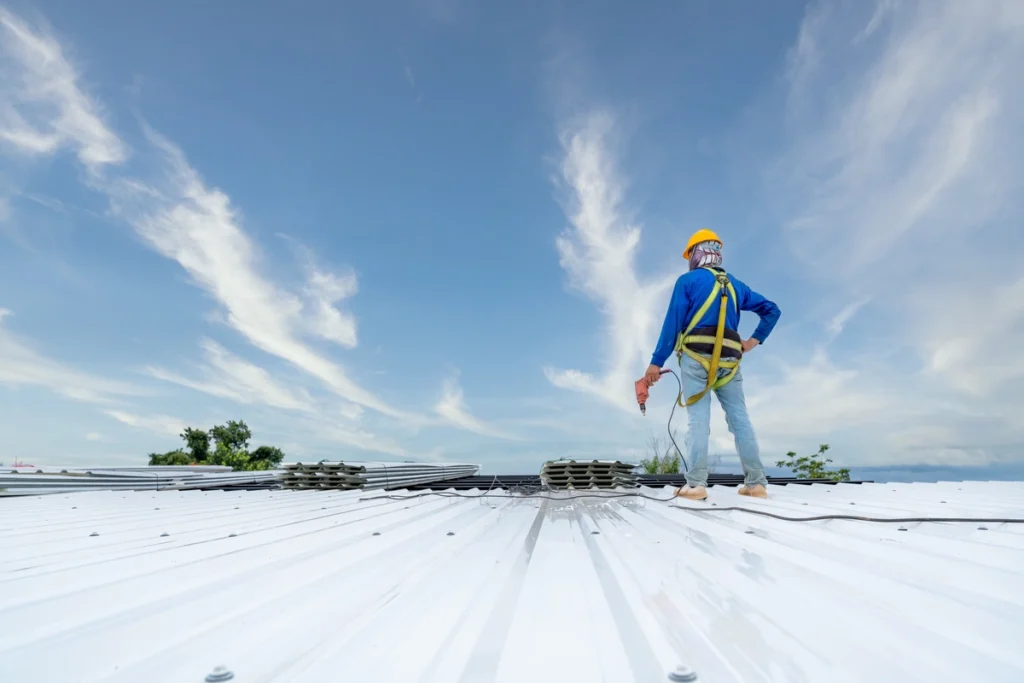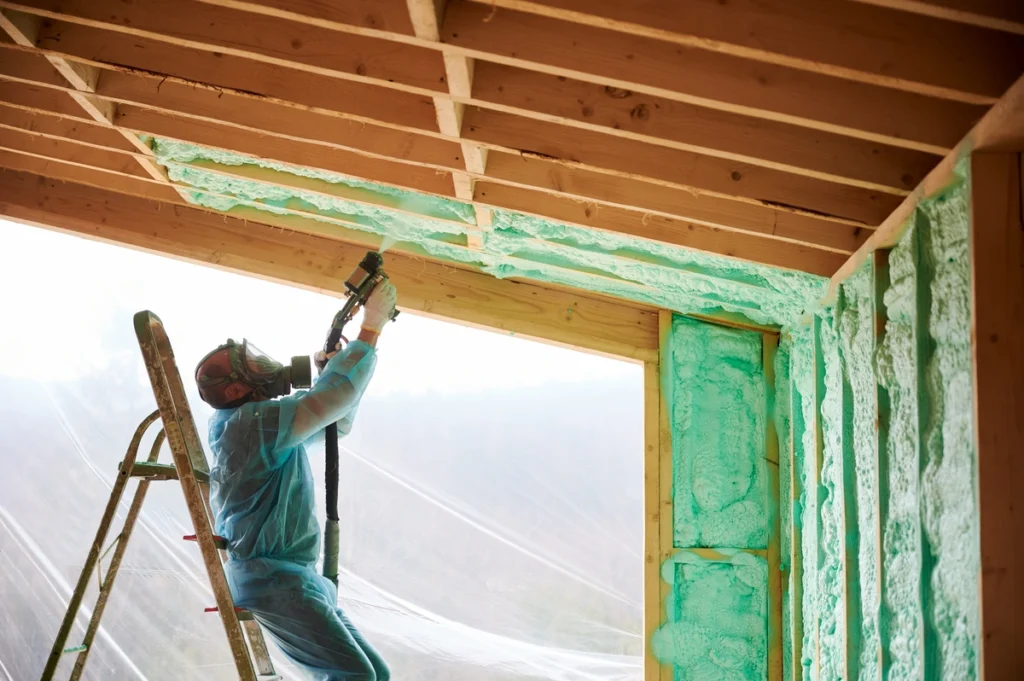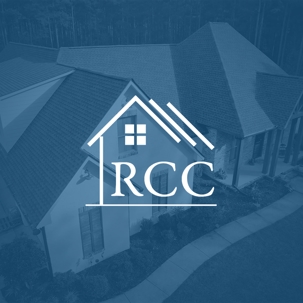The world of commercial roofing is as diverse as it is essential, offering various systems tailored to the needs of different establishments. Each type has its own unique features, advantages, and drawbacks (often related to expense or upkeep) that can impact a building’s durability, energy efficiency, or overall longevity.
We’ll delve into the most common types of commercial roofing systems and commercial roofing materials. Types of commercial roofs vary widely, but Rankin County Customs offers a wide range of options for various commercial establishments.
Understanding the differences between commercial roofing material can help you make an informed decision about what is best for your commercial property.
Common Types of Commercial Roofing Systems

There are several common types of commercial roofs. We’ll list the 4 most common types of commercial roofing materials:
- Metal Roofing
Metal roofing is increasingly becoming a top choice for commercial roofing systems due to its remarkable durability and fire resistance. These roofs are crafted from materials such as corrugated steel, tin, and aluminum.
This versatility in material selection not only provides an array of aesthetic options but also allows customization according to the specific needs of the building.
The strength and longevity of metal roofs certainly make them stand out among commercial roofing options. These tough exteriors can weather various conditions from intense sun exposure to heavy snowfall without compromising the integrity of the structure underneath.
It’s this ability to perform under pressure that endears metal roofing systems to owners and managers of modern commercial buildings.
- Built-Up Roofing (BUR) Membrane
Renowned for its resilience and cost-effective nature, the Built-Up Roofing (BUR) system is a steadfast choice when it comes to commercial flat roofing applications. The BUR system is meticulously constructed with multiple layers of roofing materials, creating a watertight barrier that guards the building against severe weather conditions.
Notably, field-fabricated layers add an extra layer of protection, making BUR membranes superior in terms of safeguarding properties. Boasting over a century-long popularity in North America alone, these systems have become synonymous with durability in commercial roofs across numerous types of commercial buildings.
- Spray Polyurethane Foam Roofing
In the world of commercial roofing, Spray Polyurethane Foam (SPF) is a game-changer. This high-performance solution involves spraying a liquid onto the roof that expands into closed-cell foam – essentially creating an additional layer of insulation and protection for your building.
SPF roofs have two major attributes: they’re both rigid and pliable. This combination allows them to withstand foot traffic, falling debris, even extreme weather conditions without compromising their effectiveness or integrity.
Furthermore, this energy-efficient roofing material offers another edge over traditional systems; it can significantly reduce urban heat island effects on flat-roofed structures by reflecting sunlight instead of absorbing it like asphalt shingles or metal roofs typically do.
- Single-Ply Membrane Roofing
Single-ply membrane roofing is a popular choice for commercial buildings with low-slope or flat roofs. This type of roofing system consists of a single layer of synthetic material that serves as a waterproofing and protective layer.
EPDM, which stands for Ethylene Propylene Diene Monomer, is made of a durable rubber-like material. It offers excellent resistance to UV radiation and can withstand extreme weather conditions without deteriorating.
PVC (Polyvinyl Chloride) is another common option that provides great protection against chemicals, punctures, and UV radiation.
These single-ply membrane roofing systems are lightweight yet cost-effective solutions for commercial buildings. They offer reliable waterproofing while being easy to install and maintain.
So if you’re considering a new roof for your commercial building, don’t overlook the benefits offered by single-ply membrane roofing systems like EPDM, PVC, and TPO.
Pros and Cons

Metal roofing is a durable and energy-efficient option for commercial roofs, although it can be expensive. BUR membrane roofing is cost-effective but requires regular maintenance — each roofing option comes with pros and cons that should be weighted against each other based upon the nature of the building.
Metal Roofing – Reduce Heating and Cooling Costs
Metal roofing is a popular choice for commercial buildings due to its durability and energy efficiency. These roofs are built to last, with many metal roof systems carrying warranties of up to 50 years or more.
In terms of energy efficiency, metal roofs help reduce heating and cooling costs by reflecting the sun’s rays instead of absorbing them like other roofing materials.
While metal roofs offer numerous benefits, they do tend to be more expensive compared to alternative roofing options. The cost can vary depending on factors such as the type of metal used (such as steel or aluminum) and any additional coatings or finishes applied.
BUR Membrane – Cost Effective
One popular type of commercial roofing system is the Built-Up Roofing (BUR) Membrane. These roofs are known for being cost-effective, making them a practical choice for many commercial buildings.
BUR membranes consist of multiple layers of materials, typically including asphalt and felt, that are poured onto the roof in alternating layers.
However, it’s important to note that BUR membranes do require regular maintenance to ensure their longevity. The multiple layers can be prone to wear and tear over time, so inspections and repairs are necessary to keep the roof in good condition.
Despite this need for regular upkeep, BUR membranes offer strong protection against UV rays and can increase energy efficiency by providing added insulation to a property.
Spray Polyurethane Foam – Waterproofing and Insulation

Spray Polyurethane Foam (SPF) roofing systems are known for their exceptional insulation properties, making them an excellent choice for commercial roofs. SPF roofs provide unmatched energy efficiency by creating a seamless and highly insulative barrier between the building and the outside elements.
Another advantage of SPF roofing is its ability to provide superior waterproofing qualities. The foam forms a protective layer that can withstand harsh weather conditions, including heavy rain, high winds, and even hail.
However, it’s important to note that SPF roofs may require occasional maintenance in the form of recoating. Over time, UV radiation from the sun can cause gradual degradation of the foam surface.
Despite this minor upkeep requirement, many building owners opt for spray polyurethane foam roofing due to its overall effectiveness at insulating buildings and providing long-lasting protection against weather elements.
Single-Ply Membrane – Versatile and Low-Maintenance
Single-ply membrane roofing systems, such as EPDM (ethylene propylene diene terpolymer) and TPO (thermoplastic olefin), are popular choices for commercial buildings due to their versatility and low maintenance requirements.
These roofing systems consist of a single layer of synthetic material that is applied directly onto the roof deck.
One of the key advantages of single-ply membranes is their versatility. They can be installed on various types of roofs, including flat roofs and low slope roofs, making them suitable for a wide range of commercial structures.
When it comes to maintenance, single-ply membrane roofs require minimal upkeep compared to other roofing systems. Routine inspections and regular cleaning are usually sufficient to keep them in good condition.
Punctures can occur from foot traffic, falling debris, or even improper installation practices.
Despite this vulnerability, it’s crucial to highlight that when correctly installed and well-maintained, single-ply membrane roofing systems offer reliable protection against weather elements and extended service life.
Conclusion
Ultimately, the best commercial roofing system will depend on factors such as budget, climate conditions, and specific needs of the building.
A professional roofing contractor should always be consulted when selecting the best roofing solution for a commercial property. By investing in high-quality materials and properly maintaining the roof system over time, building owners can ensure longevity and protect their investment.
Remember that choosing the right type of commercial roof should take into account factors such as location-specific issues, foot traffic on rooftops, falling debris risks (particularly if located near trees or other structures), air quality considerations, drainage system requirements, compatibility with solar panel installations, and fire resistance features where appropriate.
Understanding the pros and cons of each commercial roofing system allows commercial building owners can make informed decisions to protect their investment while ensuring the safety and efficiency of their properties for years to come.
Rankin County Custom offers commercial roofing systems for warehouses, storage buildings, restaurants and more! Contact us today for a free quote on your commercial roof.

